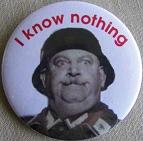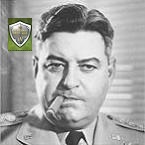The premise of this article is laid out in the title. This article will assert that the ‘operational level of war’ is a fallacy built on a failure to understand historical teaching on strategy and tactics.
The reason why the idea of an operational level of war is not fit for purpose is that it has attempted to create an artificial and flawed linkage between strategy and tactics. This has had two negative effects. First it has denigrated and marginalised tactics. Second, it has undermined the correct understanding of strategy.
[...]
While armies conducted ‘operations’, such activity did not impinge on the delineation of strategy and tactics. Conducting operations did not an operational level of war make!
The operational level of war is strongly associated with Soviet military thought. A.A. Svechin is often seen as the originator of the idea, when he discussed ‘Operational Art’ (operativnoe iskustvo) as conceptual connection between tactics and strategy.[iii] He defined an operation as ‘the effort of troops directed towards the achievement of a certain intermediate goal in a certain theatre of military operations without interruptions.’[iv] In the very next sentence he went on to explain that operations were designed to destroy or encircle a portion of the enemy forces to force a withdrawal of other forces, to capture or hold a ‘certain line or geographical area.’ Destroying a portion of the enemy’s armies is what battles traditionally sought to do. Svechin’s description equates strongly with battle and thus tactics, at least in terms of the outcome described.
Much Soviet and Russian writing (and Western analysis of it) on the Operational Level of War is, once subject to rigour, paper-thin and mostly a sophistry that arbitrarily creates a false and unneeded link between strategy and tactics. [...] If the acme of operational art is encirclement operations, then at what level of command does this operational level of war take place? A platoon can encircle an enemy section, just as much as an army group can encircle an enemy army.
Campaign in theater = strategy, operation in campaign = tactics, and so on.
[font="Times New Roman"]I'm not well-versed in this sort of thing, so perhaps it's not a controversial point?
The full article can be read here following free registration.
Discuss.[/font]






 [:D][:D]
[:D][:D] Dutch
Dutch

